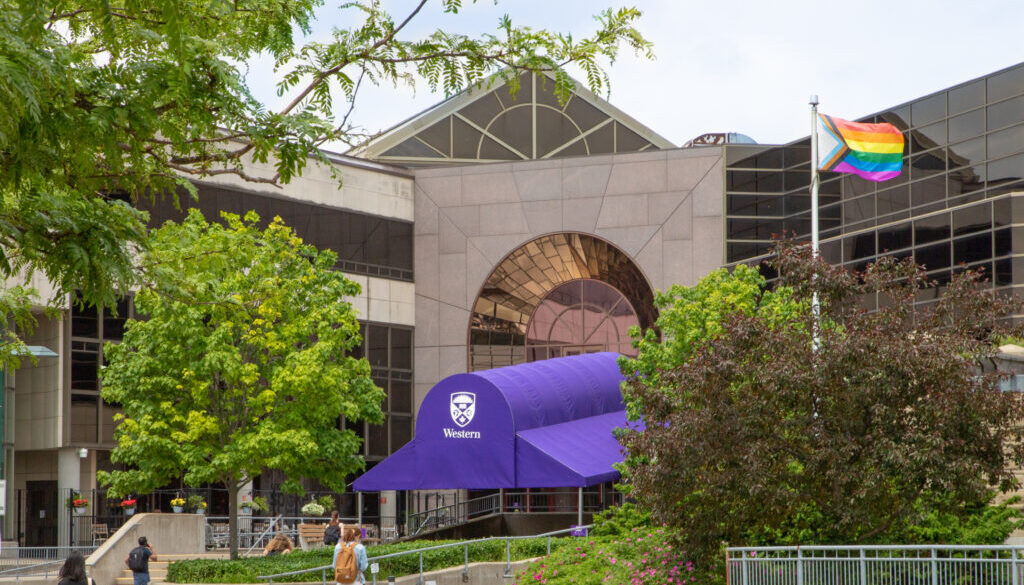Cost of Living Crisis: International Perspective
It’s time to address something that needs to be said out loud: international students are so disadvantaged when it comes to their financial burden. In addition to the exorbitant amount of tuition they pay to obtain an education, they still struggle with the high cost of living in Canada.
This year at Western, domestic students pay around $6,000 in tuition for most programs such as Social Science, Arts and Humanities or Science. On the other hand, international students pay up to $40,000. That’s over six times the amount that domestic students pay. And it’s even worse for programs such as Engineering and MOS, where international students pay up to $54,000.
And this doesn’t just happen at Western. International students across all Canadian universities are charged three to ten times higher than domestic students when it comes to tuition.
Moreover, domestic tuition was frozen during the pandemic and still continues to be frozen. International tuition? It has never been frozen and continues to increase by around eight percent every year.
The increase in the cost of living in Canada is also alarming; Canada’s inflation rate was 6.8 percent this year while the global average is just around three to five percent every year. This means necessities such as housing and groceries have dramatically increased.
And for international students, affording things is way harder, says Manuela Garzon, a second-year political science student at Huron and an international student from Colombia.
“Personally, the rising cost of living impacts the way that I manage my personal expenses. With a high cost of living, the money that my family and I are able to allocate for my education keeps fluctuating. It risks the ability of us international students to continue our studies here,” says Garzon.
For students like Garzon, who are from countries facing high inflation rates such as Colombia, Myanmar, and Sri Lanka, paying for tuition fees is a lot harder than it seems. Not only do they have to deal with actually finding the funds, they also have to go through multiple steps in order to transfer money to their respective universities.
Jessica Look, the USC’s Vice President External Affairs, agrees with this: “Our international students are definitely hit a lot harder than our domestic counterparts. Not only do they have to pay for their rent, their tuition, textbooks, and groceries, but some students also have to take on extra jobs to relieve their financial burden, and all this impacts their mental health, the time they can take for themselves, and the time they can devote to their studies.”
Kiara Burcher, a second-year computer science and mathematics student from Bermuda, echoes these sentiments. “In order for me to be able to afford my tuition, I have to obtain multiple scholarships from my home country. And in addition to that, I have to find ways to pay for my living expenses, which are still extremely high. Doing that on top of schoolwork puts a great toll on my mental health.”
“Western, like many other Canadian universities, offer very few financial aid opportunities for international students like me, such as bursaries and grants, and I think that needs to change. I came to Canada for better opportunities but it’s hard to actually get these opportunities without the financial support that I need,” Burcher adds.
And this is what the USC is aiming to help international students out with. Lauren Jarman, the USC’s Vice President University Affairs, says that the USC is focusing on increasing student financial aid and relieving the financial barriers for international students wherever possible.
“We consistently recommend that Western implement better communication about the ways that international tuition may increase, as right now it is not regulated by the provincial government. We believe that students deserve more transparency so that they are informed about how their tuition may change,” says Jarman.
The USC has also focused its advocacy efforts on student financial aid, according to Look. “Federally, we’re advocating for more grants for students and more support for international students with financial aid and employment opportunities. Provincially, we’re advocating for more tuition regulation and predictability for international students. While we recognize that we cannot immediately decrease the international student tuition, we’re advocating for predictability and regulation so that international students are at least able to foresee how much they’re going to be spending rather than unruly increases from year to year,” says Look.
Recently, the Canadian government temporarily lifted the cap on the number of hours per week that international students can work off-campus, which used to be 20 hours per week. With this, Jarman says that the USC is working with the Experiential Learning portfolio to increase Work Study opportunities and career support resources for international students.
“Jobs on-campus and off-campus are great opportunities for students who have the ability to balance school life and work life without sacrificing their personal life,” says Garzon. “With on-campus jobs, I know that Western, Huron, and the USC do an amazing job in providing flexible jobs for students to help offset the costs they face.”
And that’s indeed true! You can check out the student employment opportunities available on the Careers site. Moreover, the USC’s Wave and Spoke frequently hires students, no experience necessary. You can also access the Get Involved section in the USC Now App or the Western USC site for experiential learning and paid employment opportunities. Paid opportunities to work for the USC’s portfolio will also open near the end of the school year.
Western also has numerous services that you can access for help with your finances, such as the Registrar’s Financial Aid office, Western’s Career Services, and the Off-Campus Housing office. You can also reach out to Health and Wellness at Thames Hall for physical and mental health support during these stressful times.
The USC also provides helpful initiatives for international students with financial barriers as well. You can access the USC’s food bank, operated by Food Support Services, in Room 40F in the UCC when you need groceries. You can also reach out to your respective faculty councilors or directly to Vice President Jarman at universityaffairs@westernusc.ca if you would like to see different advocacy priorities.
“Ultimately,” says Look, “I think it’s important to recognize that all levels of government need to work together with universities and student bodies in order to support students through this, especially keeping in mind that our students are not only the leaders tomorrow–they’re leaders today.”





